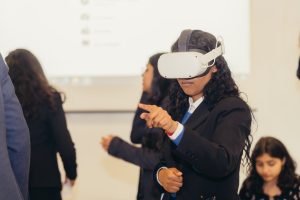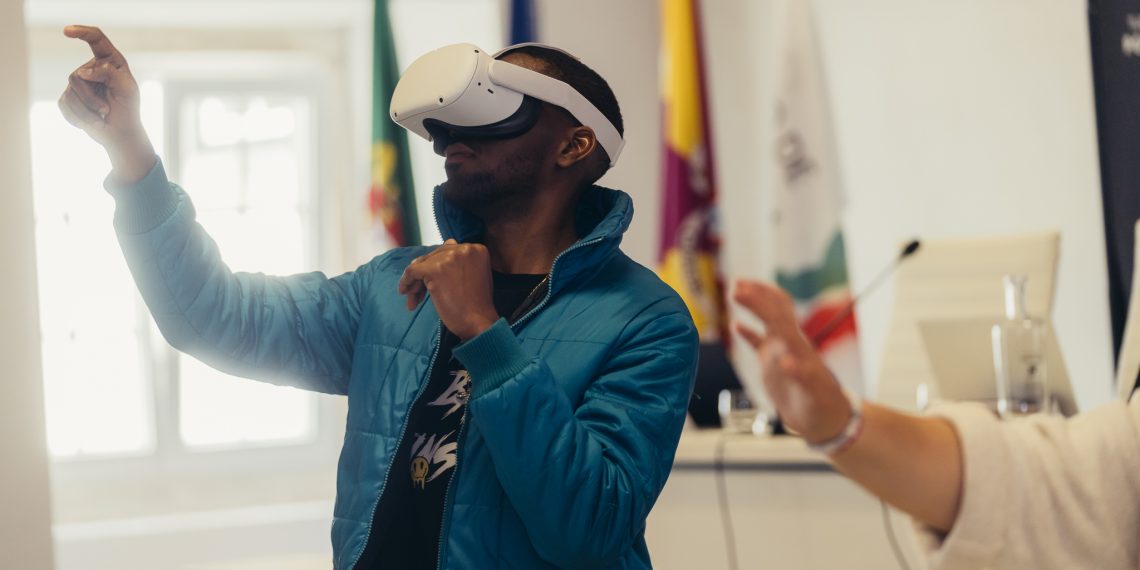Can you imagine a Virtual Reality (VR) tool capable of supporting students or recent graduates looking for jobs? For two years, INESC TEC advanced the Life Skills VR project, through the development of a unique app that identifies the strengths and skills of those who are entering the labour market, guiding them to specific jobs.
During the COVID-19 pandemic, many youngsters were forced to compete with other recent graduates and more experienced workers who had lost their jobs. The project led to the development of an app that resorts to gamification techniques, tested among 300 participants from the five countries involved – Portugal, Italy, Malta, UK and Greece.
“We joined the other partners of the consortium and collaborated in the definition of needs and the app specification. We also carried out a series of tests in Portugal; moreover, the final meeting to evaluate the project’s implementation and present the results, as well as the report to reviewers, took place in our country”, stated Demetrius Lancet, INESC TEC researcher, referring to the final event of the project, organised at the Escola do Turismo (Coimbra), in April.
In practical terms, the app combines VR interactivity and the personality traits proposed by the Holland model (RIASEC), which defines six types of personalities/environments: Realistic, Investigative, Artistic, Social, Enterprising and Conventional. This way, the solution acts as an innovative tool that allows the users’ involvement in the definition and testing of several scenarios, concerning their professional options.

“The vocational tests have been used for many years; and besides the lack of involvement in said tests and surveys, the results only focus on the applicants’ favoured areas. There wasn’t a tool capable of providing the adequate involvement to current generations. Right now, the solution is only available as a web tool. By generating a virtual environment and enabling tests with the RIASEC model, users can apply their real-work experience and knowledge and create several virtual world situations”, explained Demetrius Lancet.
The app is currently being tested, and the final version will be available soon. This innovative system will hopefully improve the digital skills using VR apps, helping people addressing their mistakes and planning positive results, while improving teamwork skills.
Besides INESC TEC, the project featured the Center for Factories of the Future Limited (UK), the Fondazione Polo Universitario Grossetano and ARTES 4.0 – Advanced Robotics and Enabling Digital Technologies & Systems (IT), the Mediterranean Maritime Research and Training Center (MLT) and IDEC (GR). A delegation of the Universidade Aberta (UAb) of Coimbra also attended the final event – through INESC TEC hub at said university.
The researcher mentioned in this news piece is associated with UAb, UTAD and INESC TEC.



 News, current topics, curiosities and so much more about INESC TEC and its community!
News, current topics, curiosities and so much more about INESC TEC and its community!